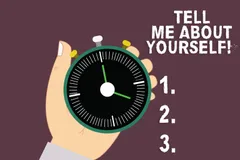Introduction
Self-employment can be both rewarding and challenging. While it offers freedom, flexibility, and the ability to be your own boss, it also comes with significant responsibilities and uncertainties. If you find yourself yearning for change and seeking a different professional path, this guide will provide you with insights and actionable steps to stop self-employment and explore alternative options.
Understanding the Desire to Stop Self Employment
Transitioning away from self-employment requires careful consideration and introspection. Before embarking on this journey, it is essential to understand the reasons behind your desire for change. Here are some common motivations for wanting to stop self-employment:
Limited growth potential:
Self-employment may restrict your ability to expand and scale your business beyond a certain point.
Isolation:
Working alone can lead to feelings of loneliness and a lack of social interaction.
Increased stress and burnout: The responsibilities of running a business single-handedly can take a toll on your well-being.
Financial uncertainties:
Inconsistent income and unpredictable cash flow can create financial instability.
Limited skill utilization:
As a self-employed individual, you may have skills and talents that are not fully utilized in your current venture.
Exploring Alternatives to Self Employment
If you’ve decided to stop self-employment, consider the following alternatives to find a new professional path:
Traditional Employment
Returning to traditional employment offers stability, benefits, and a regular paycheck. Consider your skills and expertise and explore opportunities in industries that align with your interests.
Freelancing or Contract Work
Transitioning to freelancing or contract work allows you to retain some of the benefits of self-employment while providing opportunities for collaboration and networking
Starting a Business with Partners
If you enjoy the entrepreneurial aspect of self-employment but wish to share the workload and responsibilities, consider partnering with like-minded individuals to start a business together.
Exploring New Industries or Careers
Stopping self-employment can be an opportunity to explore entirely new industries or career paths. Take the time to identify your passions and interests, and consider acquiring additional skills or education if necessary.
Steps to Stop Self-Employment
Stopping self-employment requires careful planning and execution. Follow these steps to facilitate a smooth transition:
Evaluate Your Current Situation
Assess your current business, including its financial health, market position, and future prospects. Determine whether selling, closing, or transferring ownership is the best course of action.
Create a Transition Plan
Develop a comprehensive transition plan that outlines your desired timeline, financial considerations, and necessary actions. Consider seeking professional advice to ensure a smooth process.
Communicate with Clients or Customers
Inform your clients or customers about your decision to stop self-employment. Provide adequate notice and support them in transitioning to alternative service providers, if applicable.
Update Your Resume and Network
Prepare an updated resume highlighting your skills, experiences, and achievements. Leverage your professional network and inform them of your intention to explore new opportunities.
Frequently Asked Questions (FAQs) about stop self-employment
Q: Is it common to stop self-employment and pursue a different career path?
A: Yes, it is increasingly common for individuals to reassess their professional journey and explore different avenues beyond self-employment.
Q: How can I ensure a successful transition from self-employment to traditional employment?
A: To ensure a smooth transition, focus on networking, updating your skills, and tailoring your resume to highlight relevant experiences for traditional employment.
Q: What financial considerations should I keep in mind when stopping self-employment?
A: Consider your current financial situation, including savings, outstanding debts, and future income prospects. Develop a budget and seek financial advice if needed.
Conclusion
Breaking free from the solo work cycle of self-employment requires careful planning, introspection, and a clear understanding of your goals. By evaluating your motivations, exploring alternative options, and following a step-by-step approach, you can successfully stop self-employment and embark on a new professional journey. Remember, change can be both challenging and rewarding, and by taking proactive steps, you can shape your future according to your aspirations.







